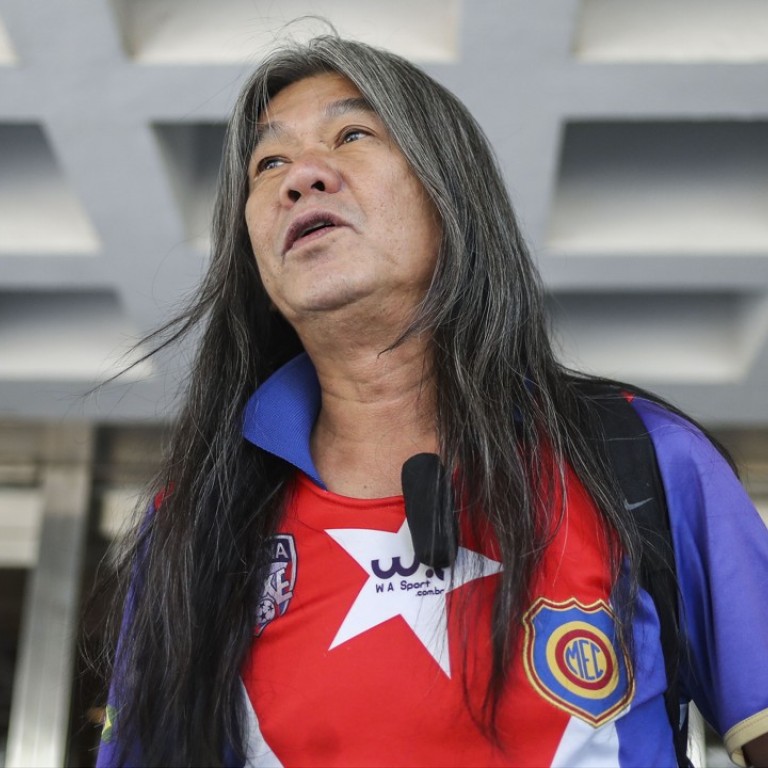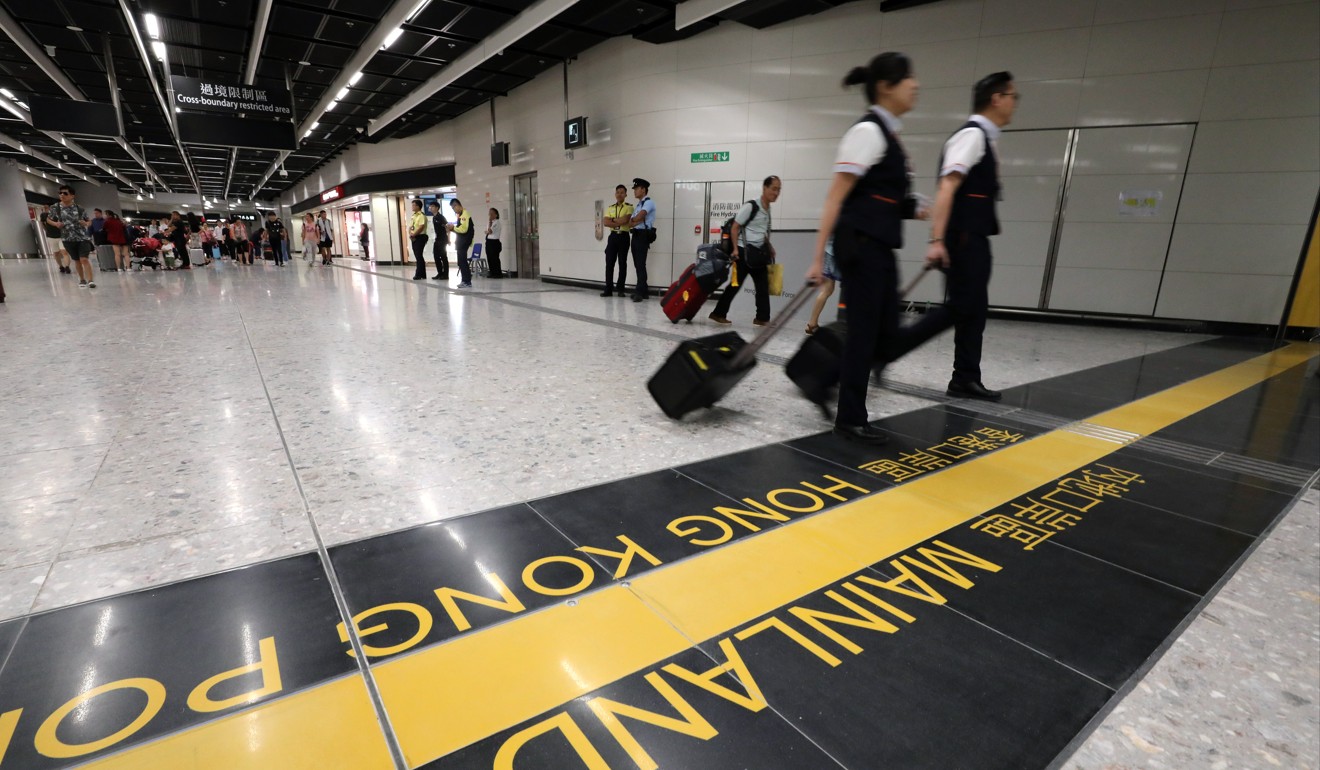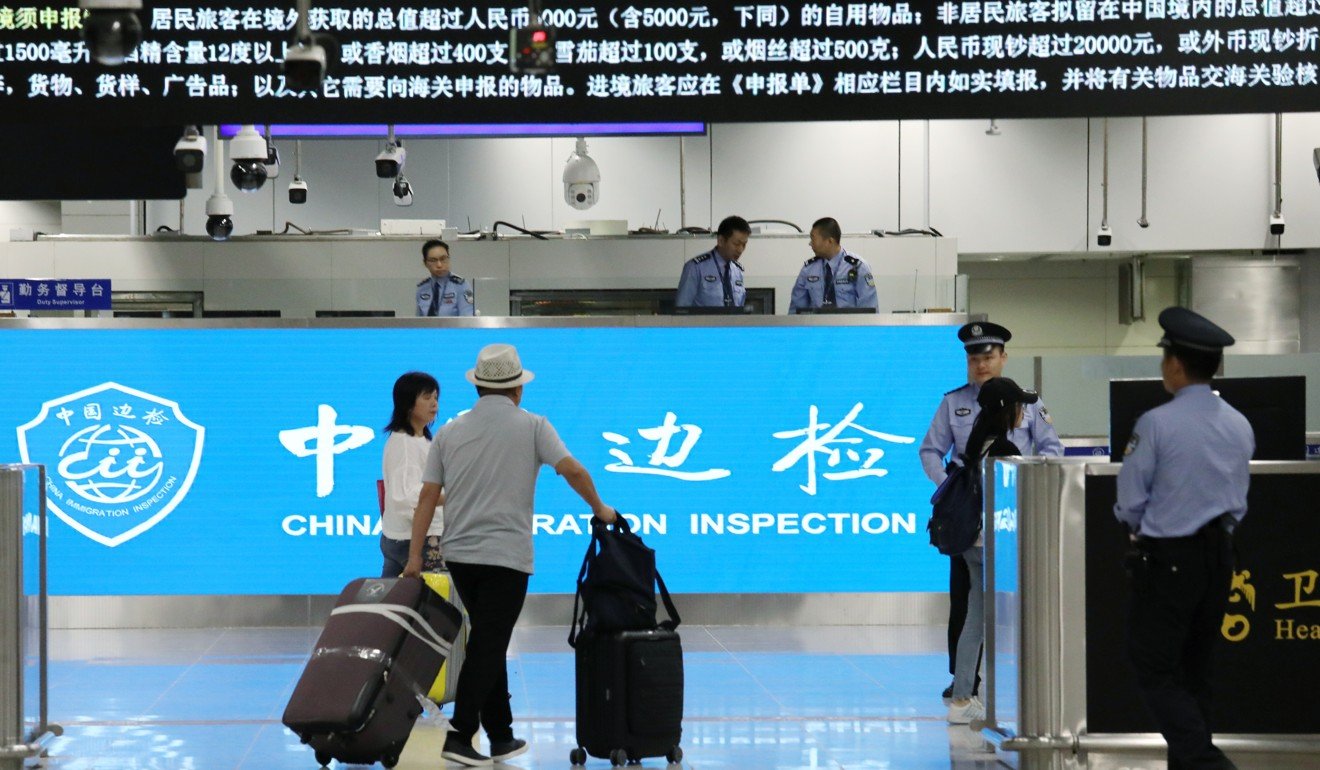
Trio’s challenge to controversial express rail link checkpoint in Hong Kong back on track after winning legal aid appeal
Activists took Legal Aid Department to court after it refused to grant them funding for judicial review bids
Ousted lawmakers “Long Hair” Leung Kwok-hung and Sixtus Baggio Leung Chung-hang along with NeoDemocrats member Jeff Ku Chun-hin took the Legal Aid Department to court after it earlier refused to grant them funding for their challenges.
In a closed-door hearing on Friday, High Court Master Andy Ho Chi-yin overturned the department’s earlier decision and allowed the trio’s appeal.
“[Ho] said different litigants would have different arguments,” Leung Kwok-hung, who attended the hearing, recounted.

The trio were among five applicants who filed similar judicial reviews to challenge the validity of the so-called co-location arrangement instituted two weeks ago.
Was Hong Kong’s rail line to mainland China worth all the sacrifices?
The department had only granted funding to one challenger, Hendrick Lui Chi-hang.
Leung said the judge found the department’s decision not reasonable because it did not ensure viewpoints by all five would be adequately conveyed.
However, in ordering the legal aid, Ho required the three to use the same team of lawyers to boost efficiency, Leung said.
Lui will be engaging his own lawyers.
Leung said the details were still to be sorted out, but, according to Ku, they would be represented by human rights law scholar Johannes Chan Man-mun SC from the University of Hong Kong.
Their lawyers and those representing the government are expected to clash when the hearing starts on October 30 before Mr Justice Anderson Chow Ka-ming.

Under the co-location plan, the Hong Kong government has leased a section of the West Kowloon terminus to mainland immigration and customs authorities.
800 mainland officers to enforce national law at high-speed rail terminus
But critics said the plan amounted to a contravention of the Basic Law and was unconstitutional.
The fifth challenger was retired civil servant Kwok Cheuk-kin.
Both Baggio Leung and Kwok earlier sought a temporary ban so the co-location plan could not be put in force until the hearing in October. But Chow, the judge, refused their request in August.
The high-speed rail service and co-location plan have been in operation since September 23.

